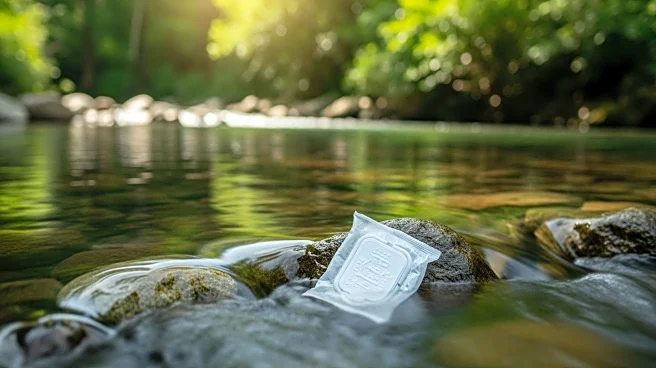What's Happening?
The Environment Secretary, Emma Reynolds, has announced a new law banning the sale of plastic wet wipes in England, set to take effect in Spring 2027. This legislation aims to address pollution issues
caused by wet wipes, which can block waterways and sewer systems, creating 'fatbergs' and breaking down into microplastics that harm wildlife and enter the food chain. The ban includes exemptions for medical professionals and allows retailers an 18-month transition period to sell existing stock. The Welsh government has already implemented similar legislation, with Northern Ireland and Scotland expected to follow suit. Retailers like Boots and Tesco have proactively removed plastic wet wipes from their shelves, offering biodegradable alternatives. The government is urging consumers to avoid flushing wipes and has called on manufacturers to update product labeling to reflect this message.
Why It's Important?
The ban on plastic wet wipes is a significant step in reducing environmental pollution and protecting wildlife. Wet wipes contribute to 94% of sewer blockages, costing water companies approximately £200 million annually, which is reflected in household water bills. By eliminating plastic wet wipes, the government aims to reduce these costs and environmental impacts. This move aligns with broader efforts to clean up rivers, lakes, and seas, and supports the transition to more sustainable consumer products. Retailers and consumers are encouraged to adopt biodegradable alternatives, which could lead to a shift in market demand and production practices.
What's Next?
Following the implementation of the ban, the government will consider extending the legislation to include the manufacture of plastic wet wipes. This could further drive innovation in biodegradable materials and sustainable product design. Manufacturers and retailers will need to adapt to these changes, potentially influencing global markets as other countries observe England's approach. The government will continue to promote public awareness campaigns to discourage flushing wipes and encourage responsible disposal practices.









